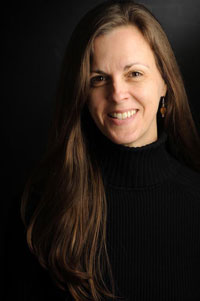In her diaries, Etty Hillesum bore witness to what was happening not only in the world around her but also the world within her—the one place Hitler’s troops could not invade. Amid the mounting terrors that the Nazis were inflicting, Etty documented and reflected on the dailiness of her life. She wrote of the complexities of her relationships with family and friends, her work as a Russian tutor, her passionate appetite for reading (among her favorites were the works of the poet Rilke as well as the Gospels). She wrote of her hungers, her longings, her prayers. She wrote of the presence of beauty that the brutality around her could not diminish.
In one of the final entries in her diary, written shortly after taking a job in the Cultural Affairs Department of the Jewish Council in Amsterdam, Etty wrote, “My red and yellow roses are now fully open. While I sat there working in that hell, they quietly went on blossoming. Many say, ‘How can you still think of flowers!'” The next morning she wrote, “If I should survive and keep saying, ‘life is beautiful and meaningful,’ then they will have to believe me.'”
Persisting in paying attention to beauty, writing in her diary, chronicling and exploring the state of her soul along with the state of the world: these were not forms of escapism for Etty. Rather, her words reveal her conviction that the exterior and interior worlds are not separate from one another. Etty knew that doing one’s inner work is crucial to the thriving of a society. She wrote that if we refuse to look into our own shadows, if we resist going into the dark places within ourselves and our world, our shadows eventually spill out in hatred and violence—as her own homeland was experiencing.
“I am sometimes so distracted by all the appalling happenings round me,” Etty wrote one day, “that it’s far from easy to find the way back to myself. And yet that’s what I must do.”
Questions for reflection
How do you navigate the relationship between your inner and outer worlds? How do you stay aware of and respond to what’s going on around you, at the same time that you attend to what’s unfolding in your interior landscape? How do you find the way back to yourself? In the midst of seeing and ministering to the brokenness of the world, how do you persist in paying attention to beauty?
Quotations of Etty’s words are from Etty: The Diaries and Letters of Etty Hillesum 1941-43 and can also be found in an abridged version of her work, An Interrupted Life: The Diaries of Etty Hillesum 1941-43.

You reflections are supporting me in my own Lenten wonderings, as my attention ricochets between world tragedy and horror and the beauty of my own emerging spring garden. I am trusting the God of the Garden to generate courage and energy to face the world of nightmare and deconstruction which we are all living. Thanks again for your faithful companioning. A blessed Lent!